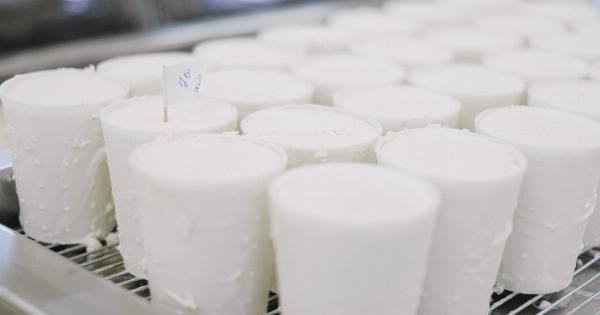When it comes to nursing, a woman’s diet plays a crucial role in ensuring the health and well-being of both the mother and the baby.
While breastfeeding, certain foods can have an impact on the baby’s digestion, development, and overall health. Therefore, it is important for nursing mothers to be aware of the foods that they should cut out or limit in their diet.
In this article, we will discuss the foods that nursing mothers should avoid and provide recommendations for a healthy breastfeeding diet.
Caffeine
Caffeine is a stimulant that can find its way into a nursing mother’s breast milk and affect the baby’s sleep patterns and overall behavior.
While some babies may be more sensitive to caffeine than others, it is generally a good idea for nursing mothers to limit their caffeine intake. This includes reducing the consumption of coffee, tea, energy drinks, and other caffeinated beverages.
Alcohol
Alcohol can pass through breast milk to the baby, potentially affecting their development and overall well-being. It is advisable for nursing mothers to avoid alcohol consumption while breastfeeding.
If you do wish to have an occasional drink, it is essential to time it carefully. As a general rule, wait at least 2-3 hours after consuming alcohol before breastfeeding again to minimize the baby’s exposure to it.
Spicy Foods
Spicy foods can cause digestive issues in newborns, leading to discomfort and fussiness. Although spices and herbs themselves are not harmful, they can alter the taste of breast milk, potentially making the baby reluctant to feed.
It is recommended for nursing mothers to limit their consumption of spicy foods or observe their baby’s reactions after consuming such foods.
Gas-Inducing Foods
Some foods tend to produce more gas, which can cause discomfort and bloating in infants.
While it varies from baby to baby, certain gas-producing foods to avoid or limit while nursing include beans, lentils, broccoli, cabbage, onions, and carbonated beverages. Keep a close eye on your baby’s reactions after consuming these foods to identify any adverse effects.
Food Allergens
Food allergies can be passed through breast milk, so nursing mothers should be cautious about consuming common allergenic foods. These include peanuts, tree nuts, dairy products, eggs, soy, and wheat.
If you suspect that your baby may have an allergy or sensitivity, consult with a healthcare professional who can guide you on an elimination diet to identify the trigger.
High-Mercury Fish
While fish is generally a healthy choice for nursing mothers due to its omega-3 fatty acids, certain types of fish can contain high levels of mercury.
High-mercury fish such as shark, swordfish, king mackerel, and tilefish should be avoided as mercury can negatively impact the baby’s developing nervous system. Opt for low-mercury alternatives like salmon, trout, or shrimp.
Citrus Fruits
Citrus fruits are known to be acidic and can cause or exacerbate reflux in some babies.
If you notice your baby experiencing increased spitting up or signs of discomfort after you consume citrus fruits like oranges, lemons, or grapefruits, it may be best to reduce your intake or avoid them altogether.
Dairy Products for Lactose-Intolerant Babies
Some babies may have a lactose intolerance or sensitivity to certain proteins found in dairy products.
If your baby experiences significant bloating, gas, or digestive issues after you consume dairy, it may be necessary to limit your dairy intake or seek alternatives like lactose-free products or plant-based milk substitutes.
Artificial Sweeteners
Artificial sweeteners, such as aspartame or saccharin, may reach breast milk and can potentially be harmful to the baby.
It is advisable for nursing mothers to avoid or limit their consumption of products that contain these sweeteners, such as diet sodas or sugar-free snacks.
Highly Processed or Junk Foods
Highly processed foods, including sugary snacks, chips, and fast food, lack essential nutrients and can lead to weight gain and other health problems.
While occasional indulgence is acceptable, nursing mothers should focus on a well-balanced diet consisting of whole grains, lean proteins, fruits, vegetables, and healthy fats to provide the necessary nutrients for both mother and baby.
Conclusion
A healthy breastfeeding diet is essential for both the nursing mother and the baby’s well-being. While it is not necessary to completely eliminate any particular food group, moderation and awareness are key.
By avoiding or limiting certain foods, nursing mothers can ensure that their baby receives optimal nutrition and minimize the risks of digestive issues or adverse reactions. It is always recommended to consult with a healthcare professional or a registered dietitian to personalize dietary recommendations based on your specific needs and the baby’s condition.



























